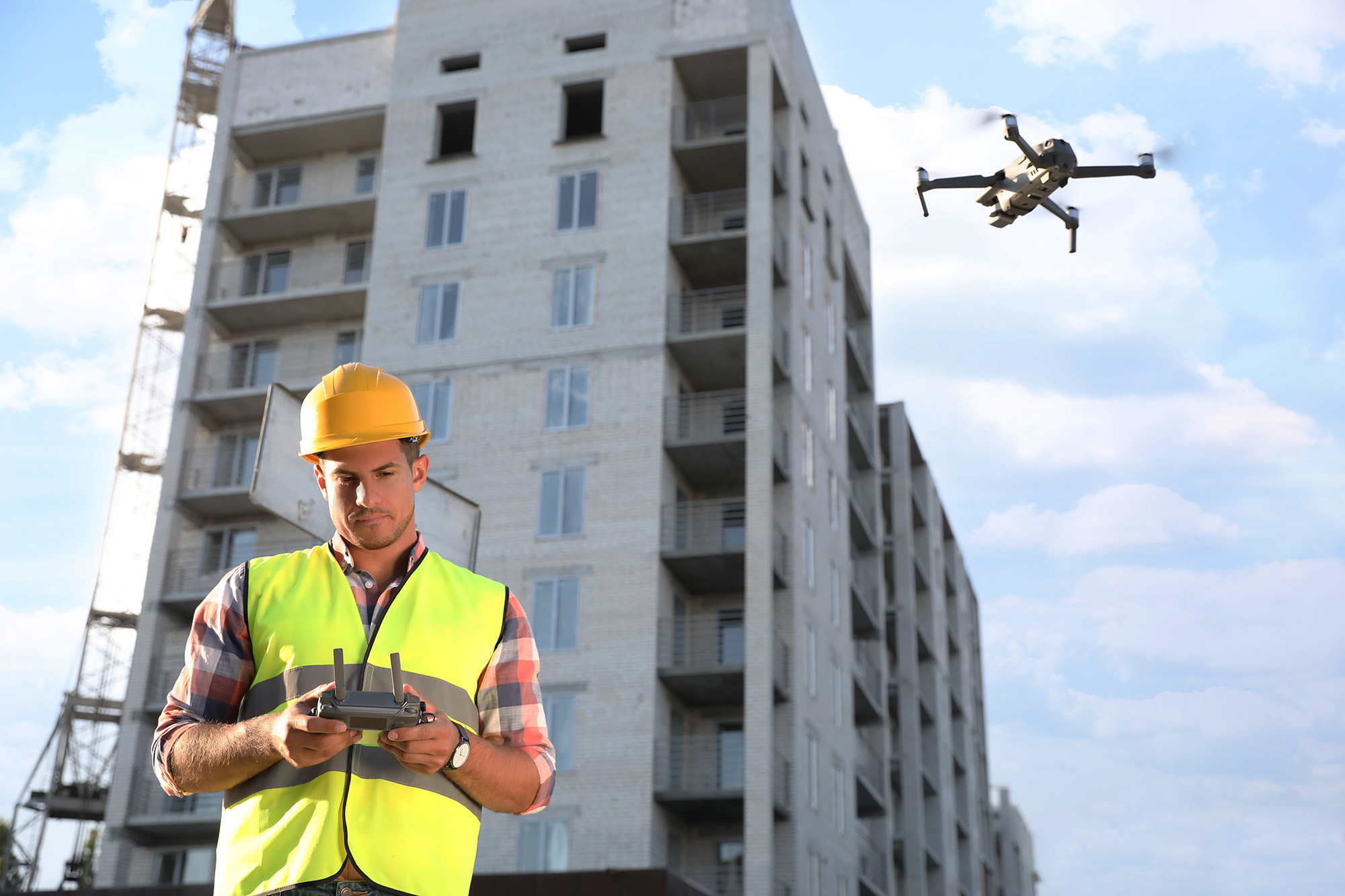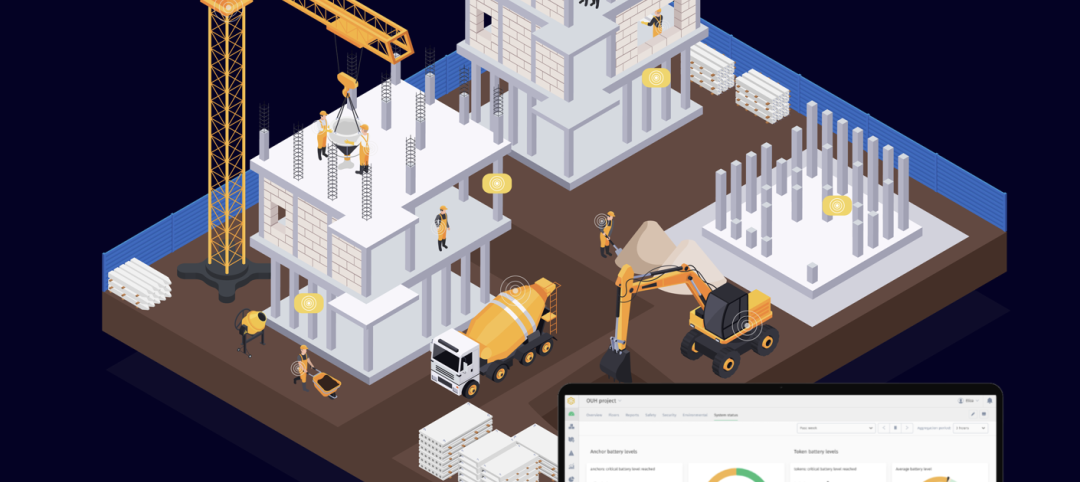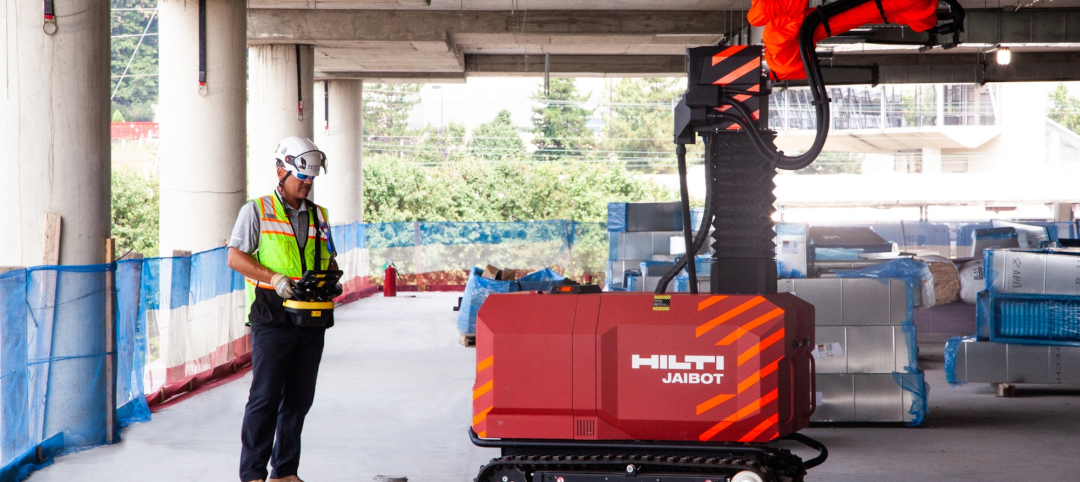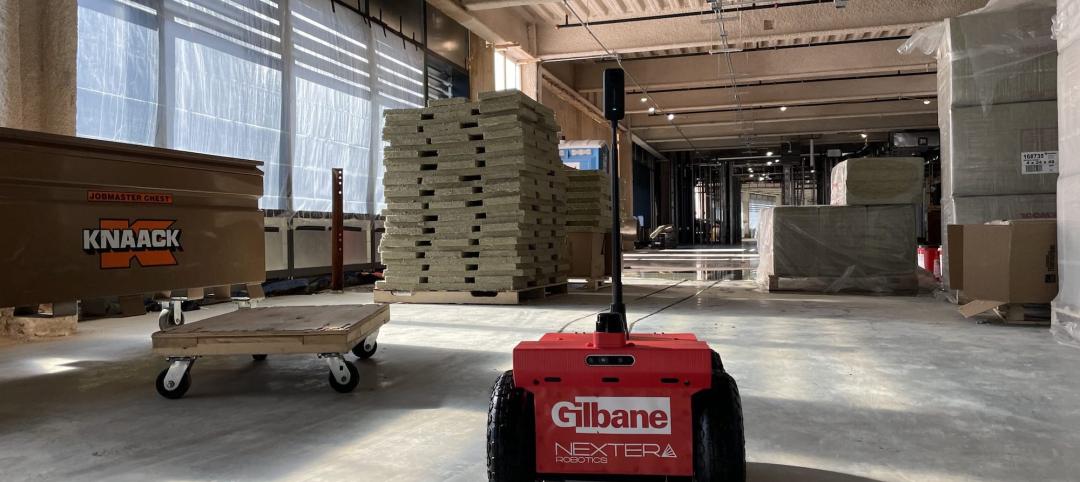BuiltWorlds, a member network dedicated to inspiring and advancing innovation in the AEC industry, has released its 2024 Tools, Equipment, and Robotics Benchmarking Report, an annual report that presents user survey data on category-specific technology adoption and usage. The report revealed that while the industry has been slow to adopt robotic solutions en masse, there has been considerable progress in certain areas, with one provider in particular seemingly pulling ahead as the preferred provider.
“The integration of advanced tools, equipment, and robotics represents a significant leap toward modernizing and streamlining operations within the AEC industry,” wrote BuiltWorlds Research Analyst Audrey Lynch, who authored the report. “This year, we saw the highest levels of adoption in monitoring robotics and service/labor robotics, two of the four main categories we've identified in construction robotics”
Nearly two-thirds of contractors surveyed, who cited use of robotics on jobsites, are either using monitoring and/or service/labor robotics. Thirty-five percent admitted to using autonomous heavy equipment, and a paltry 6% prefabrication robotics.
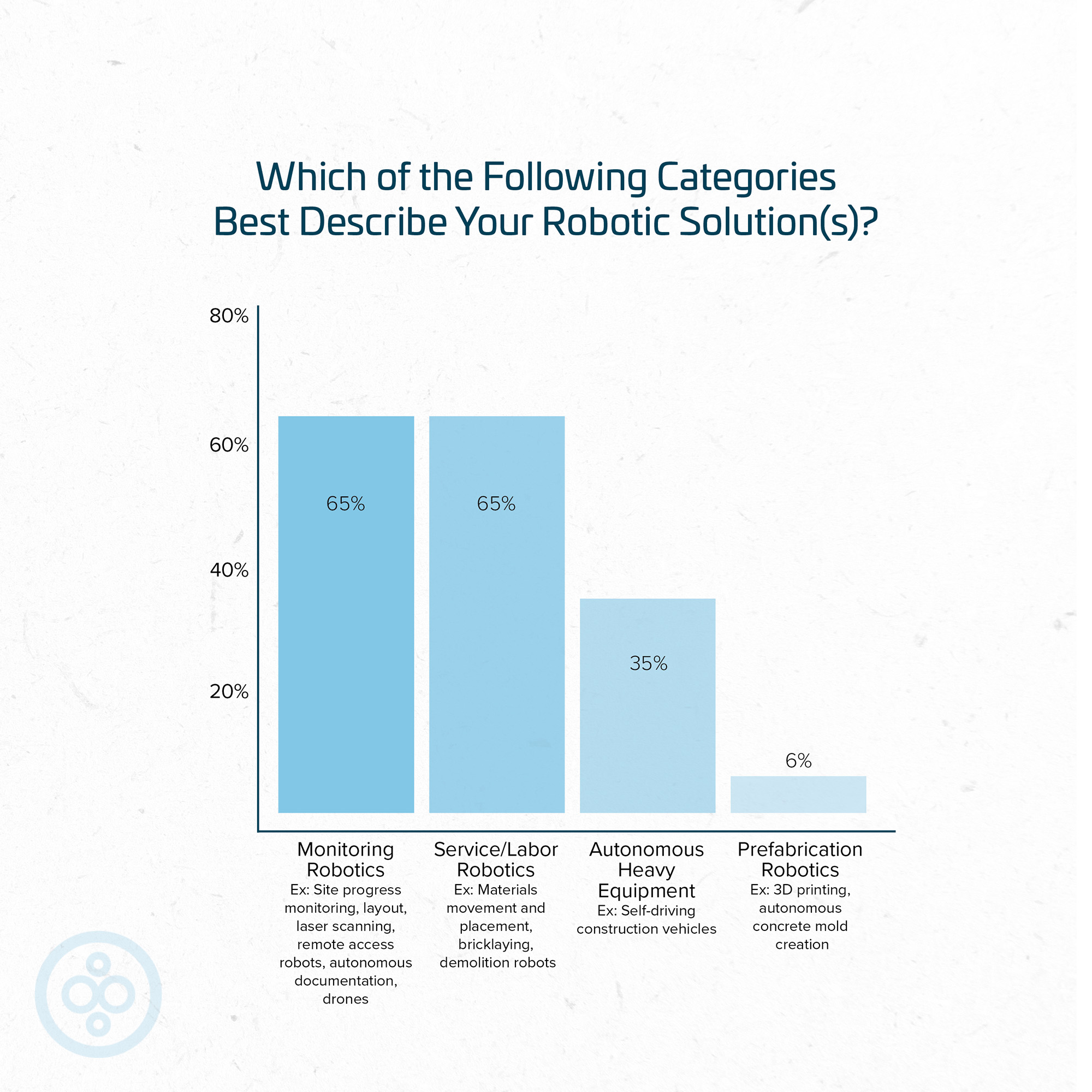
“There is a confluence of factors that are all working in tandem to drive increased utilization of robotics in the construction industry. The primary push forward is an increasingly prominent labor shortage in the industry,” said Tyler Sewall, Senior Director of Research for BuiltWorlds. He added, “Meanwhile, the typical barriers to adoption are slowly waning, leading to an environment more receptive to robotic solutions. The increased use of BIM, improved operability and accuracy, improved data collection and utilization, and an industry more culturally inclined to new technologies have all yielded material increases in the use of robotics.”
A Leading Provider in Dusty Robotics
Among the multiple robotic technology solutions providers named in the report, one provider stood out as both most implemented as well as highest rated: Dusty Robotics, a company that builds robots to help in laying out jobsites.
“Dusty Robotics consistently outperforms the industry average across all evaluated criteria, indicating its strong market position,” Lynch wrote. “With top ratings in adoption/utilization, ease of use, coordination with site activities, and data integration, the solution demonstrates its effectiveness and user-friendliness. It also excels in installation/performance speed and quality (tied with Civ Robotics), highlighting its reliability and efficiency.”
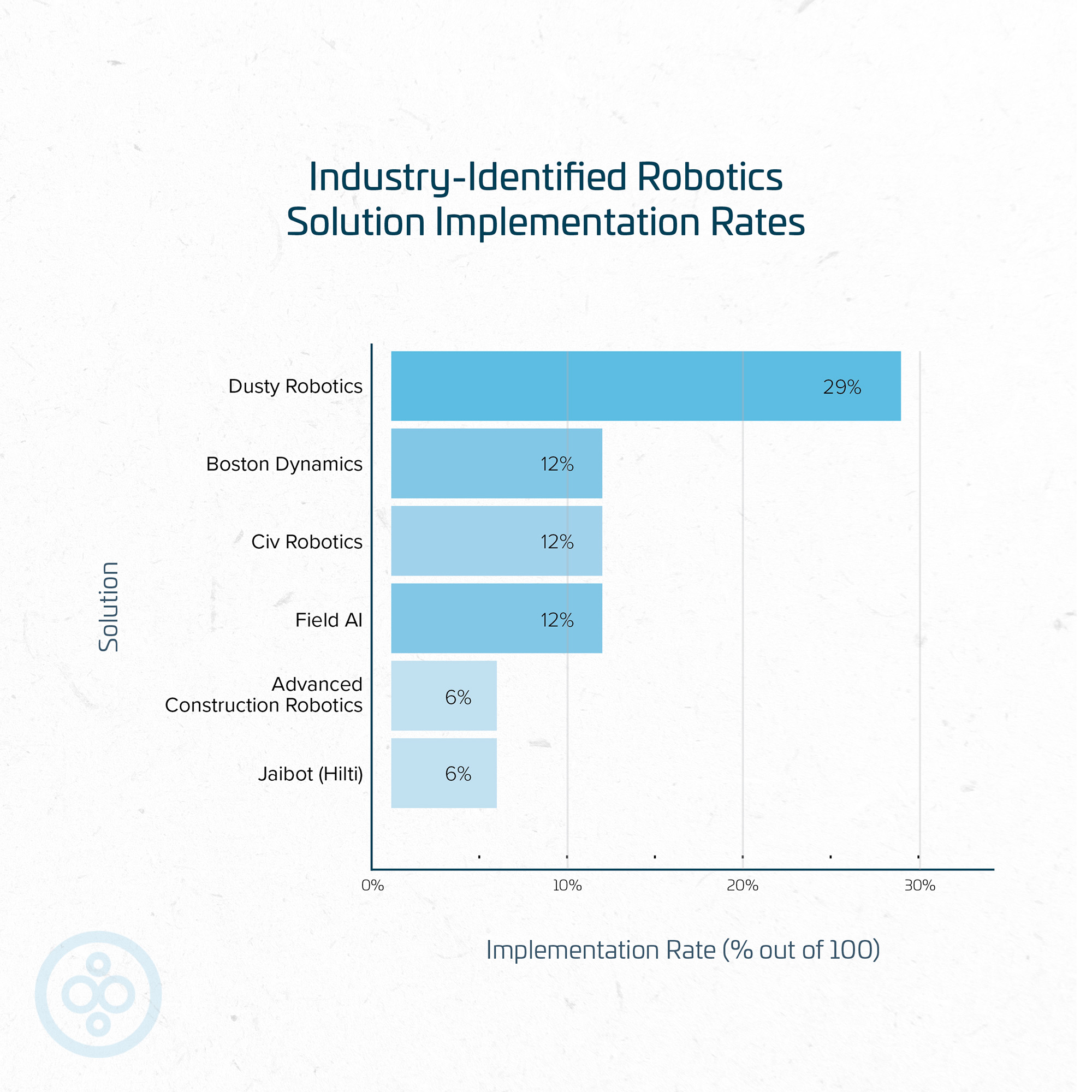
Why ‘Better Adoption’ Isn’t ‘Mass Adoption’
But while this year’s report shows wider scale adoption than years previous, particularly in the areas of service/labor and monitoring robotics, the industry has yet to embrace robotics into its mainstream.
“As much as the case for robotics continues to grow,” Sewall said, “there are, frankly, still so many reasons why robotics adoption isn't widespread, and may not be for a while.”
For one, most robotic solutions, he explained, require some variety of building model in order to operate.
“BIM, while well-adopted in some markets, is significantly underutilized in large portions of the industry.”
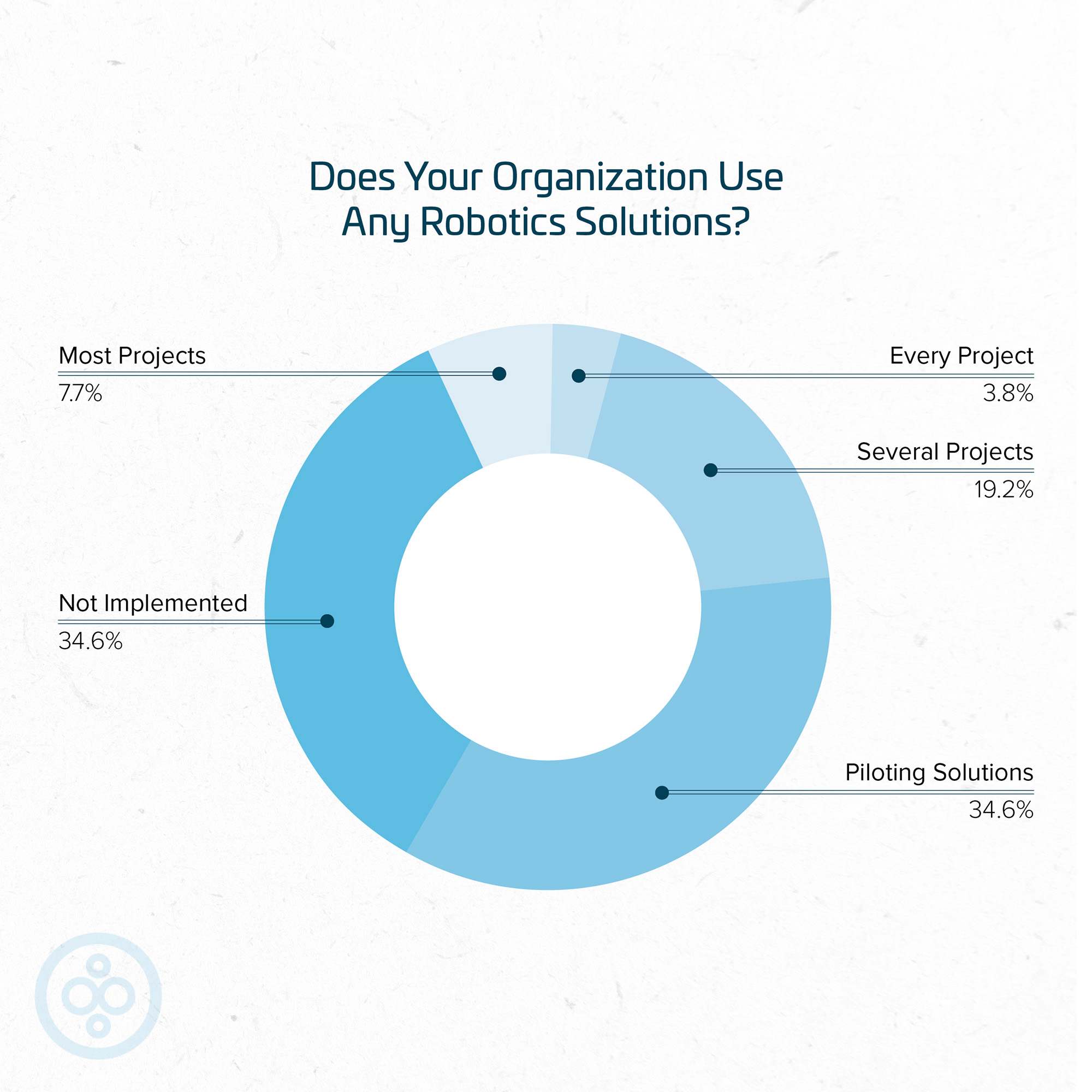
Another reason, Sewall shared, is that robotics, like any new technology, comes with a certain amount of risk—which is a problem in a traditionally risk averse industry.
“With layout robots, for instance, the second question is always, ‘Who owns the layout,’” he explained. “If the general contractor dictates how layout will be done, does that change the owner of the risk?”
Finally, and most obviously, is the cost.
“The up-front costs of robotic solutions are expensive,” Sewall said. “While larger companies can support these costs, many small- and mid-sized contractors simply cannot support any additional spend.”
Still, while there remain significant barriers to mainstream adoption of construction robotics, the data seems to indicate a slow acceptance and utilization of a technology that represents a massive boost to safety, efficiency, and productivity.
Related Stories
AEC Tech | Jan 27, 2023
Key takeaways from Autodesk University 2022
Autodesk laid out its long-term vision to drive digital collaboration through cloud-based solutions and emphasized the importance of connecting people, processes and data.
AEC Tech Innovation | Jan 24, 2023
ConTech investment weathered last year’s shaky economy
Investment in construction technology (ConTech) hit $5.38 billion last year (less than a 1% falloff compared to 2021) from 228 deals, according to CEMEX Ventures’ estimates. The firm announced its top 50 construction technology startups of 2023.
AEC Tech | Jan 19, 2023
Data-informed design, with Josh Fritz of LEO A DALY
Joshua Fritz, Leo A Daly's first Data Scientist, discusses how information analysis can improve building project outcomes.
AEC Tech Innovation | Jan 14, 2023
CES recognizes a Dutch firm’s wearable technology for construction management
The firm’s TokenMe product offers construction managers a real-time crowd- and asset-tracking solution via low-power, location-aware radio and RFID tags and multiple sensors through which data are processed with cloud-based artificial intelligence.
Digital Twin | Nov 21, 2022
An inside look at the airport industry's plan to develop a digital twin guidebook
Zoë Fisher, AIA explores how design strategies are changing the way we deliver and design projects in the post-pandemic world.
Giants 400 | Nov 14, 2022
4 emerging trends from BD+C's 2022 Giants 400 Report
Regenerative design, cognitive health, and jobsite robotics highlight the top trends from the 519 design and construction firms that participated in BD+C's 2022 Giants 400 Report.
Contractors | Nov 14, 2022
U.S. construction firms lean on technology to manage growth and weather the pandemic
In 2021, Gilbane Building Company and Nextera Robotics partnered in a joint venture to develop an artificial intelligence platform utilizing a fleet of autonomous mobile robots. The platform, dubbed Didge, is designed to automate construction management, maximize reliability and safety, and minimize operational costs. This was just one of myriad examples over the past 18 months of contractor giants turning to construction technology (ConTech) to gather jobsite data, manage workers and equipment, and smooth the construction process.
BAS and Security | Oct 19, 2022
The biggest cybersecurity threats in commercial real estate, and how to mitigate them
Coleman Wolf, Senior Security Systems Consultant with global engineering firm ESD, outlines the top-three cybersecurity threats to commercial and institutional building owners and property managers, and offers advice on how to deter and defend against hackers.
Webinar | Oct 6, 2022
Register today! Live webinar: The future of 3D + 360° construction progress management
Learn about the value of digital site documentation and progress monitoring, how reality capture is used for site documentation, and the value of both 3D scans and 360 photos. This live webinar will take place Thursday, October 20 at 2 ET/ 1 CT.
AEC Tech | Sep 23, 2022
Register today! Live webinar: 10 KPIs your AE firm needs to track for maximum project profitability
Join us for an engaging, live webinar presented by Steven Burns, FAIA, Chief Creative Officer at BQE Software as he explores 10 project performance KPIs that, when tracked properly, will transform the way your business operates, and subsequently how profitable each project is.


